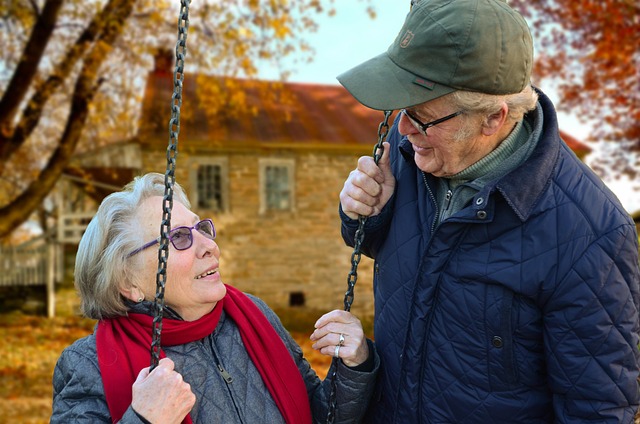Oregon grandparental rights are legally protected through state law, including specific legislation like ORS Chapter 109. Grandparents can access legal support from family law professionals to navigate court proceedings and petition for rights based on the child's best interests. Establishing a parental relationship is key, requiring active participation and fostering a stable environment. Legal aid from organizations dedicated to family law advocacy offers pro bono services or sliding scale fees, assisting grandparents in preserving their bond with grandchildren.
In Oregon, understanding and protecting grandparental rights is crucial for fostering strong family connections. This comprehensive guide navigates the legal landscape, offering insights into Oregon’s laws surrounding grandparental rights. We explore the establishment of parental relationships, common challenges, and available resources for grandparents seeking advocacy. By delving into these aspects, we aim to empower Oregonians with knowledge, ensuring a robust support system for all family members. Discover your options and gain access to Oregon legal support for grandparental rights here.
- Understanding Grandparental Rights in Oregon
- Legal Framework for Protection: Oregon Laws
- Establishing Parental Relationship for Grandparents
- Common Challenges and How to Navigate Them
- Resources and Support for Grandparent Advocacy
Understanding Grandparental Rights in Oregon

In Oregon, grandparental rights refer to the legal protections and privileges granted to grandparents regarding their relationship with their grandchildren. These rights are recognized and enshrined in state law, ensuring that grandparents have a legally defined role and access to their grandchildren. Understanding these rights is crucial for both grandparents and parents, as it outlines the conditions under which grandparents can seek custody, visitation, or other forms of involvement in a grandchild’s life.
Oregon legal support for grandparental rights provides a framework for court proceedings where grandparents may petition for specific rights. This process involves presenting evidence to a judge that demonstrates the benefit of having a grandparent involved in a child’s life. With the help of Oregon legal professionals specialized in family law, grandparents can navigate this system effectively, ensuring their rights are protected and their interests in maintaining or establishing a meaningful relationship with their grandchildren are respected.
Legal Framework for Protection: Oregon Laws

In Oregon, the legal framework protecting grandparental rights is meticulously designed to safeguard the significant bond between grandparents and their grandchildren. The state’s laws recognize the vital role grandparents play in a child’s life and provide specific provisions to ensure their involvement and rights are preserved. Key legislation, such as Oregon Revised Statutes (ORS) Chapter 109, outlines the legal standards and procedures for establishing and maintaining grandparental relationships.
These laws address various aspects, including visitation rights, custody arrangements, and the process of challenging or modifying these rights. Oregon’s judicial system is equipped to handle cases involving grandparental protection, offering a structured approach to balance the interests of grandparents and parents while prioritizing the child’s welfare. Understanding these legal foundations is crucial for those seeking Oregon legal support for grandparental rights, as it forms the backbone of ensuring fair and just outcomes in family matters.
Establishing Parental Relationship for Grandparents

Establishing a parental relationship is a crucial step for grandparents seeking legal recognition and rights in Oregon. To have their say in their grandchild’s life, grandparents must first demonstrate a genuine connection and commitment to their role. This often involves being an active part of the child’s life, participating in caregiving, and fostering a stable and loving environment. Many grandparents in Oregon find legal support through counseling, mediation, or consulting with lawyers specializing in family law and grandparental rights.
Oregon laws recognize the significance of grandparents’ roles and offer protections to ensure their relationships with grandchildren are nurtured and preserved. Legal support can guide grandparents through the process of petitioning for parental rights, which may include visitation, custody, or joint parenting arrangements. Understanding state regulations is essential to navigating this journey successfully and ensuring the best interests of both grandparent and grandchild are represented.
Common Challenges and How to Navigate Them

Navigating grandparental rights in Oregon can be a complex process, filled with common challenges that many families face. One of the primary hurdles is establishing legal parentage; ensuring that the relationship between the grandparent and grandchild is legally recognized. Without this foundation, pursuing rights can be significantly hindered. Legal support from an Oregon family law attorney specializing in grandparental rights is invaluable for helping families navigate these initial steps.
Another challenge arises from potential opposition from the child’s parents or other family members. Grandparents may need to prove their fitness and ability to provide a stable, loving home environment. This process involves gathering robust evidence, including medical records, educational reports, and character references, to counter any concerns raised by the child’s primary guardians. Oregon legal support in this area can guide grandparents through the presentation of compelling arguments and evidence to strengthen their case.
Resources and Support for Grandparent Advocacy

In Oregon, grandparents seeking protection of their rights can find valuable resources and support from various organizations dedicated to family law advocacy. Legal aid societies and non-profit groups offer pro bono services or sliding scale fees for legal assistance, ensuring access to representation for those who might otherwise be unable to afford it. These organizations provide guidance on navigating complex legal processes, assisting with court paperwork, and offering advice tailored to grandparent-specific cases.
Additionally, support groups and community networks create a sense of camaraderie among grandparents facing similar challenges. Sharing experiences and strategies within these groups can empower grandparents to advocate for their rights effectively. Oregon’s legal landscape regarding grandparental rights can be complex, so accessing these resources is essential for ensuring the best possible outcome for families seeking protection and preservation of grandparent-child relationships.






